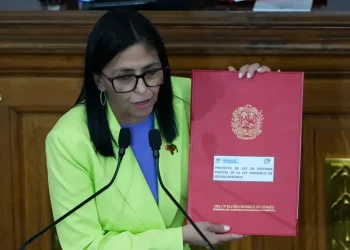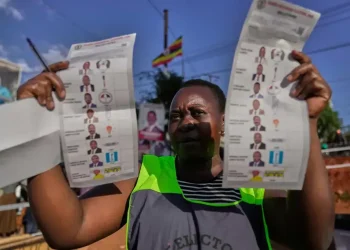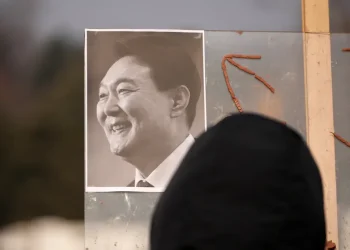Joy and Justice: New Zealand Lawmakers Sing as Controversial Treaty Bill is Overwhelmingly Rejected
New Zealand’s Parliament turned into a scene of celebration on Thursday as lawmakers broke into song after decisively voting down a divisive bill that had sparked nationwide protests and ignited fierce debate over indigenous rights.
The Treaty Principles Bill, backed by the right-wing ACT Party, was crushed in a 112-11 vote—a resounding rejection that drew cheers from across the political aisle and a powerful display of unity as MPs sang a traditional Māori Waiata in tribute to the country’s Indigenous heritage.
“This bill hasn’t been stopped, this bill has been absolutely annihilated,” declared Hana-Rāwihti Maipi-Clarke, the youngest member of Parliament and a rising Māori voice, who gained global attention for tearing the bill in half and leading a haka inside the chamber earlier in the debate.
At the heart of the controversy was an attempt to redefine the principles of the Treaty of Waitangi, the historic 1840 agreement between the British Crown and Māori chiefs that established New Zealand as a British colony while recognizing Māori land rights and sovereignty.
ACT Party leader David Seymour claimed that the Treaty’s principles were too loosely defined—existing only through decades of court rulings—and needed clearer legal definition through legislation.
But critics weren’t convinced. Opponents warned the bill would undermine Māori rights, reverse decades of legal progress, and tear at the fabric of race relations in the country.
“This was a right-wing obscenity masquerading as equality,” said Labour MP Willie Jackson during the fiery parliamentary session.
Even former Prime Minister and current Labour leader Chris Hipkins didn’t hold back, calling it a “grubby little bill, born of a grubby little deal.”
In recent months, tens of thousands of mostly Māori demonstrators took to the streets in what became one of New Zealand’s largest protest movements in recent memory. Fueled by fear that the bill threatened the foundations of Māori legal protections, the public response was swift and overwhelming.
More than 300,000 submissions were made to Parliament opposing the bill—shattering participation records.
Though the bill made it to the select committee stage—thanks to a coalition agreement that helped bring Prime Minister Christopher Luxon’s National Party into power—it was never supported by the larger coalition partners, including New Zealand First and the National Party itself.
National MP and Māori-Crown Relations Minister Tama Potaka described the bill’s defeat as “cremation day.”
“It’s dead, it’s gone, and today it will be buried,” he told RNZ.
Curiously, Prime Minister Luxon was absent during the pivotal vote—an omission that didn’t sit well with many, especially activists who had led the campaign against the bill.
“If you’re the leader of this country… you would think that the leader of our country would want to be in Parliament for an occasion that big,” said Tania Waikato, a lawyer with the Toitū te Tiriti campaign.
Despite the crushing defeat, Seymour stood firm, signaling he would continue his efforts to revisit the Treaty’s legal foundations.
“The idea that your race matters is part of a bigger problem,” Seymour told Parliament. “It’s part of that bigger idea that our lives are determined by things out of our control.”
In a political climate often marked by division, Thursday’s vote was a rare moment of cross-party consensus, cultural pride, and national reflection.
As MPs rose to sing in te reo Māori—some with tears in their eyes—it was clear that this was more than just the end of a controversial bill. It was a statement of values, a stand for indigenous rights, and a reaffirmation of the country’s commitment to honoring the Treaty of Waitangi.
This article was rewritten by JournosNews.com based on verified reporting from trusted sources. The content has been independently reviewed, fact-checked, and edited for accuracy, neutrality, tone, and global readability in accordance with Google News and AdSense standards.
All opinions, quotes, or statements from contributors, experts, or sourced organizations do not necessarily reflect the views of JournosNews.com. JournosNews.com maintains full editorial independence from any external funders, sponsors, or organizations.
Stay informed with JournosNews.com — your trusted source for verified global reporting and in-depth analysis. Follow us on Google News, BlueSky, and X for real-time updates.














